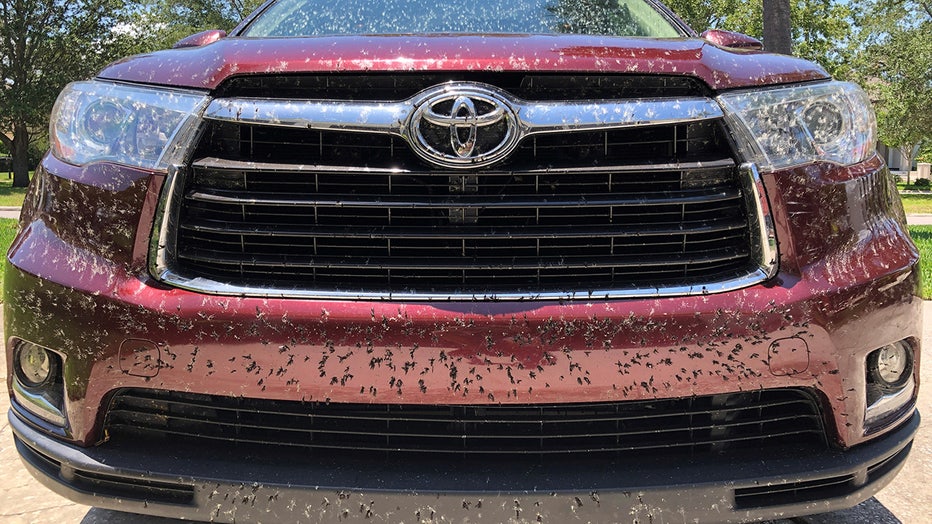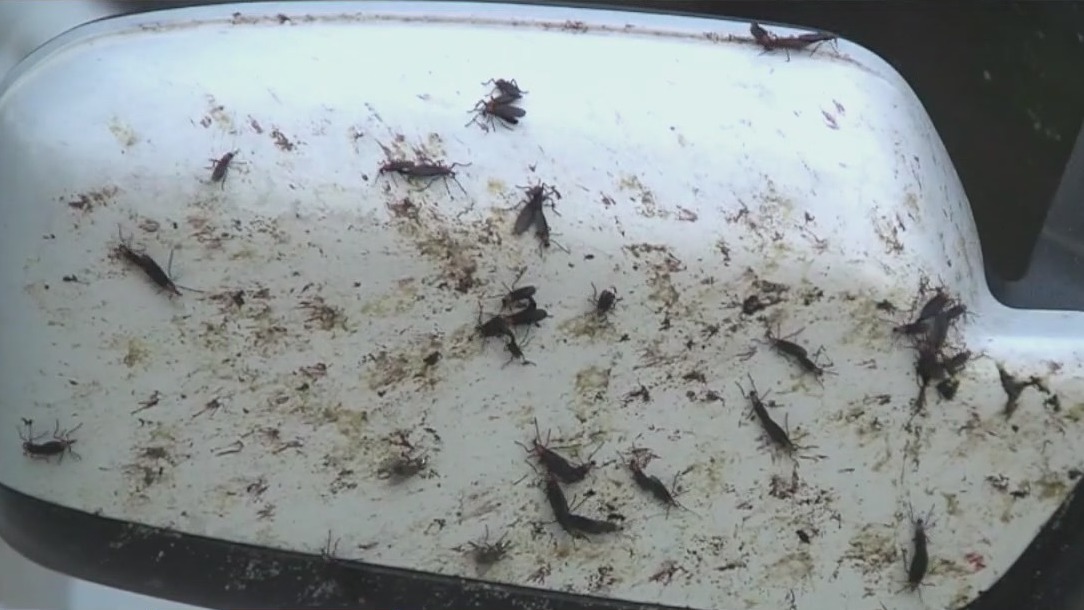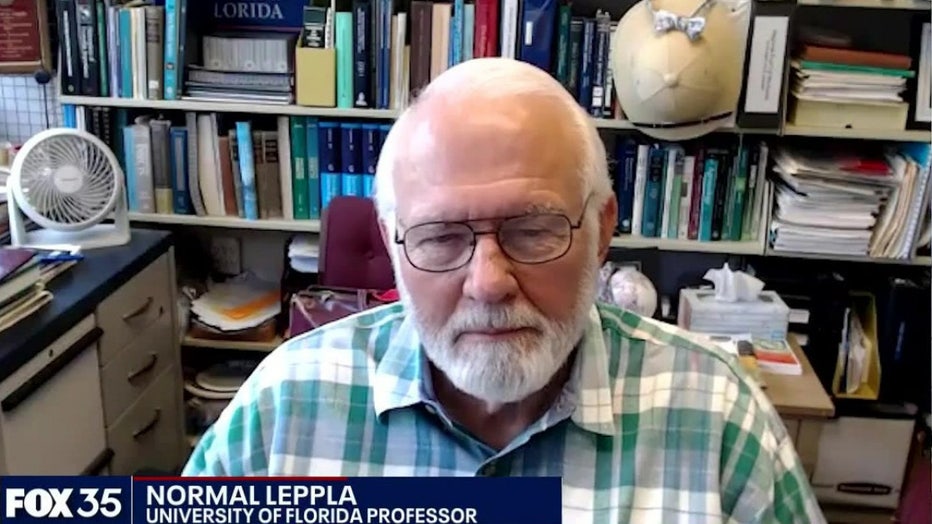These bugs would normally be swarming Florida right now. But they’ve vanished

Where are the love bugs? Researchers stumped
Central Florida residents have noticed a significant decline in love bug sightings this spring, a departure from the usual nuisance these insects cause during their brief lifespan.
TAMPA - Florida is known for a variety of potentially dangerous wildlife: Alligators, sharks, mosquitoes, drunken spring breakers, and toxic green slime. Love bugs are generally not on that list.
Are they annoying? Sure. The small black bugs swarm everywhere in the spring and again in late summer, usually in thick clouds. They can often be found with dozens of their friends, smeared across the front of your car. It takes some elbow grease – and, pro tip! A dryer sheet – to wipe them off and preserve your paint job.
But not this year. The love bugs have gone missing.
What are love bugs?

File: Love bugs plaster a Florida SUV after a drive across Interstate 4 in May of 2020 (FOX photo)
Love bugs, scientific name Plecia nearctica, are small, thin flying insects about a third of an inch long. They resemble small lightning bugs but, unlike their glowing cousins, love bugs only live for a few days. They spend most of that time mating and remain connected even after completing the act, hence their name.
Love bugs do not bite or sting, but the large swarms can get smeared on cars, obstructing windshields and radiators and, if left in place, even damaging paint. They tend to be attracted to light-colored surfaces.

Love bug season is here and your car isn't happy about it
Some people don't mind him. Others hate them. There's no avoiding love bug season is here.
"What they do is just bother people in their cars and houses," Dr. Norman Leppla, a professor at the University of Florida who specializes in entomology, told FOX 35 in Orlando.
Love bugs are not, contrary to popular urban legend, the results of a University of Florida genetic experiment unleashed into the Sunshine State. Records of the insects date back to the early 20th century, starting in Louisiana.
What happened to the love bugs?
No one is really sure. Their numbers have been declining the last few seasons and many areas have hardly seen any this year – a drop that Leppla called "a little shocking."
"They are closely related to mosquitoes, and we’ve got plenty of mosquitoes, so why don’t we have plenty of love bugs?" he wondered.

Dr. Norman Leppla, an entomology professor at the University of Florida, is puzzled by the vanishing love bugs.
Dr. Leppla suggests the bugs might be going through a pandemic of their own, but since they aren’t a huge problem, there are not a lot of people trying to find out.
"It’s not predators. We haven’t seen any parasites. Could be a pathogen," he continued. "It’s just hard to tell when a population of insects declines. What is the cause?"
Cicadas in 2024

Cicada invasion: Unusual double dose expected to hit the US
Cicada season comes around once every 13 to 17 years but this summer, an unusual double dose is about to hit, first in the south and then in Illinois and crossing into neighboring states.
While Floridians are wondering what happened to their love bugs, a different type of insect is already making headlines elsewhere. This year will be cicada-geddon: Two periodic cicada broods – one that emerges every 13 years and one that emerges every 17 years – are expected to coincidentally crawl from the ground together for the first time since 1803.
RELATED: Map: Here's where the double broods of cicadas will emerge in 2024
As billions of bugs emerge, their incessant chirping and abandoned exoskeletons will be hard to avoid this summer, from Illinois on down through the Southeast. But Florida won’t see them either.
While some cicada species do call Florida home, Brood XIX (the 13-year cicadas) and Brood XIII (the 17-year cicadas) don’t extend that far south.

